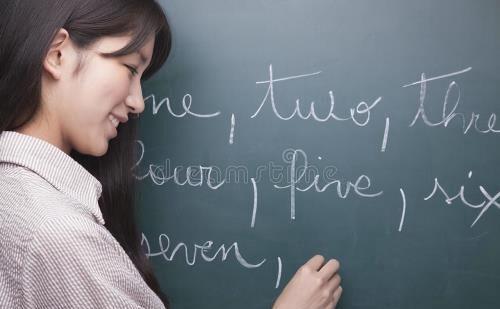情态动词用法详解(情态动词用法详解英语)
导语:情态动词用法详解
情态动词
【学习目标】
1. 掌握常见情态动词的意义及用法
2. 能够准确根据语境确定情态动词
情态动词有具体的词义,但也同助动词一样,需要与其他词语一起构成句子的谓语,另外情态动词没有人称和数的变化,
情态动词的类型
1.只作情态动词的有:must;can(could);may( might)
2.可作情态动词也可作实义动词的有need;dare
3.可作情态动词也可作助动词的有:will( would); shall( should)
4.具有情态动词某些特征的有: have to; had better; ought to
情态动词的特征
1.有一定的词义,但不能单独作谓语,必须和行为动词或系动词连用构成谓语, 情态动词后必须跟动词原形。
2.无人称和数的变化( have to例外,主语为第三人称单数时用 has to)。
如:He has to stay here.
【例题解析】
1. can 的用法:
(1).表示能力、许可、可能性。 表示能力时一般译为“能、会”, 即有这种能力,尤其是生来具备的能力,此时may 和must 均不可代替它。
如:She can swim fast, but I can’t .
I can see with my eyes.
(2).表示许可,常在口语中。
如:You can use my dictionary.
(3).表示推测,意为“可能”,常用于否定句和疑问句中, 此时can’t 译为“ 不可能”。
如:Can the news be true?
—Can it be our teacher?
—No, it can’t be our teacher. He is on a visit to the Great Wall.
2. could的用法:
(1).can的过去式,意为“ 能、 会”,表示过去的能力。
如:He could write poems when he was 10.
(2).could在疑问句中,表示委婉的语气,此时 could 没有过去式的意思。
如:Could you do me a favour?
—Could I use your pen?
—Yes, you can./Of course/Certainly
3. may的用法:
(1).表示请求、许可,意为“可以”比can 正式,
如:May I borrow your bike?
You may go home now.
may表示请求时,用于主语为第一人称的一般疑问句,其肯定回答用may回答;否定回答用 mustn&39;s do...”来提出建议。
如:Let&39;t you/we...?”的简略形式。
如:Why not meet at the school gate at eight? Why don&39;s go for a swim,shall we? What about/How about going swimming? Why not go for a swim? Would you like to go for a swim? What do you think of going for a swim?
8. should的用法:
(1).should 意为“应该” ,可表示劝告、建议、义务、责任等。
如:We should protect the environment.
我们应该保护环境。
(2).Should have done 表示对过去动作的责备、批评,意为“本该做但实际没做”。
如:You should have finished your homework.
你本应该已经完成作业了。(事实上你没有完成。)
9. will 的用法:
will表示意愿、意志、打算。
如:I will help you if I’m free this afternoon.今天下午如果我有空,我就会帮你。
注意:
1、will在there be句型中的形式及其句式变换。
由于“一般将来时”的结构可以用“will+动词原形”来表示,所以there be句型的一般将来时的形式就是there will be。(一定不能说there will have)
如: There are many students in our school. →There will be many students in our school.
There will be a sports meeting next week. 一定不能说:There will have a sports meeting next week.
2、will 与be going to do sth区别:
①. be going to 表示近期、眼下就要发生的事情,will 表示的将来时间则较远一些
如:He is going to write a letter tonight. He will write a book one day.
②. be going to 表示根据主观判断将来肯定发生的事情,will表示客观上将来势必发生的事情。
如:He is seriously ill. He is going to have a rest. He will be twenty years old.
③. be going to 含有“计划,准备”的意思,而 will 则没有这个意思,
如: She is going to lend us her book. He will be here in half an hour.
④.在有条件从句的主句中,一般不用 be going to, 而多用will
如:If any beasts comes at you, I&39;t; can B. needn&39;t; can
3.“Whose notebook is this?” “It _______ Jim’s. It has his name on it.”
A. can’t be B. must be C. can be
4. There&39;t C. must D. can&39;m sorry. Children swim alone here.
A. Must; can&39;t D. Canre right.I&39;t; can&39;t; may
C. shouldn&39;t; should
13.―Jim, can you _______ this word in Chinese?
―Yes, I can_______ a little Chinese.
A. speak; say B. say; speak C. tell; speak D. talk; say
14.—My brother won the first prize in speech competition.
—Congratulations! You be excited about that!
A. need B. must C. would D. can
15.—Meng Fei had his arm broken while recording If You Are the One in Beijing.
—Really? Then perhaps he host TV programs for some time.
A. needn’t B. mustn’t C. shouldn’t D. can’t
16. --Have you decided which senior high school to choose?
--Not yet. I go to Moonlight School.
A. must B. may C. need D. should
17. —I hear you’ve got a new iPhone x. ______ I have a look?
—Yes, certainly.
A. May B. Do C. Shall D. Should
18. The lady in this photo be over fifty! She looks so young!
A. mustn’t B. must C. can’t D. can
19.—Excuse me, when are we going to have a picnic?
—I’m not sure, Ask our monitor, please. He know.
A. need B. can C. may D. shall
20.—I’m afraid I need a pair of glasses. I ____ hardly see the words on the blackboard.
—That’s terrible. You may have got poor eyesight.
A. can B. must C. may D. need
21. Last year I ______ drive. I used to take the bus.
A. could B. couldn’t C. should D. shouldn’t
22.In Britain, you ____ be 18 if you want to drive a car.
A.can B.must C.may D.might
23.—You be excited that you’re going back to your hometown soon.
—Yes, I can’t wait any longer.
A. shall B. can C. need D. must
24.—______ I try on those shoes in the window?
—______. They are just on show.
A. Could; Yes, you can B. Can; Sorry, you couldn’t
C. Could; Sorry, you can’t D. Can; Yes, you could
25. —Whose is the pencil box?
—It_______ be Tom&39;m not sure. I ______ go climbing Mount Yuntai.
A. Must B. need C. may D. can
27. Many students come from poor families and they _____ afford school lunches, so the government is trying to help them.
A needn’t B. shouldn’t C. can’t D. mustn’t
28. _______ you dance? We need some more actors for the talent show.
A. Need B. Shall C. Must D. Can

免责声明:本站部份内容由优秀作者和原创用户编辑投稿,本站仅提供存储服务,不拥有所有权,不承担法律责任。若涉嫌侵权/违法的,请与我联系,一经查实立刻删除内容。本文内容由快快网络小余创作整理编辑!